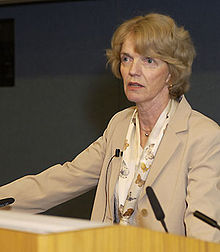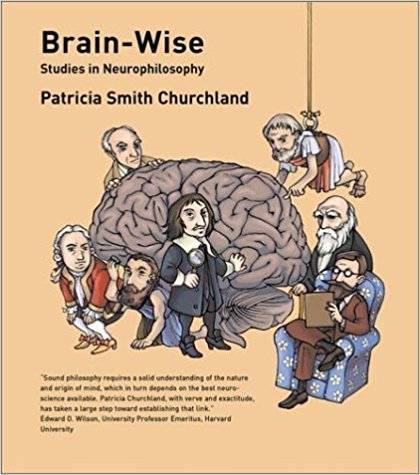Brain-Wise Summary
5 min read ⌚
 Studies in Neurophilosophy
Studies in Neurophilosophy
Time allocated to philosophical controversies without reaching a state of facts meets several mind-blowing aspects:
The understanding of God, The power of free will, and how would you describe yourself – as what?
Who Should Read “Brain-Wise”? And Why?
Whatever you take for real, another person can interpret it differently from another point of view. It is an infrastructure created by your imaginary force which contradicts the series of neural interactions. You may have heard this term before, Darwin and its theory are a perfect example of such a vision.
To understand the Neurophilosophy concept, we adopt Churchland’s approach by promoting this excessive and valuable methodology. As such, “Brain-Wise” comes highly recommended for all people keen to move beyond the daily concerns and challenge themselves on another level.
About Patricia Smith Churchland
 Patricia Smith Churchland is an expert in ancient philosophy and heads the philosophy department at the University of California. Despite her contribution to the merging process she also tries to educate other individuals on subjects related to Neurophilosophy at the Salk Institute.
Patricia Smith Churchland is an expert in ancient philosophy and heads the philosophy department at the University of California. Despite her contribution to the merging process she also tries to educate other individuals on subjects related to Neurophilosophy at the Salk Institute.
As a writer, she wrote Neurophilosophy and co-authored On the Contrary.
“Brain-Wise Summary”
The brain is a complex entity capable of achieving almost anything, yet restricted in so many ways. By all means, underachievers often feel this “limited policy” on their skin not to mention, the opportunities that faded away due to lack of courage. Nevertheless, don’t feel discouraged, the best of the best is on its way.
Every individual on this planet has immense potential to accomplish almost anything! Nonetheless, underestimating one’s capacity has become societal reality – a problem that needs to be addressed with caution. Before you enter into the world of brain-philosophy, try to broaden your perspective.
According to neuroscience experts, every possible change starts and ends with you. In the light of this discovery detailed explanation rises to the surface. Every personal trait associated with you, no matter how complex or straightforward may seem, influences your everyday motion. This neuro-chemical represent the foundation for any transformation or change that may occur.
To put it differently, it’s evident that souls are of immaterial nature, according to many cultures, beliefs, and religions. However, no facts can support nor oppose this theory or philosophy.
On the other hand, free will is something that people still have a tough time understanding it. Imposed opinions promoted through media channels are trying to suffocate that freedom. Logically, every person needs to choose its path, but that’s not the case.
Souls, mind, free will are running up against a brick wall of unproven theories, probably never to be proven. Patricia Smith Churchland – the author of “Brain-Wise,” suggests a new point of view to emerge. As an illustration of this advice, she advocates for something natural to all people like consciousness.
If all other things create divisions, self-awareness despite its mystery is the only absolute merger of humanity. In order to design a pattern of perfectly instinctive and straightforward neural activities, free will cannot be missing. In what way does this affect philosophy?
Philosophers even today tend to “play” with big questions, conspiracies, and mysteries. To get one step closer to them, help from the other disciplines is crucial. Over the course of hundreds of years, science has reached a new stage and progressed to a point where the humankind has managed to resolve many questions, leaving only a dozen more left.
Neurophilosophy represents a merger between newly established neuroscience and ancient philosophy.
The mastery of writing an inspiring book is composed of precisely defined facts, breathtaking theories, and most importantly intriguing mysteries. None of them are missing, which gives a clear sign that this book will encourage you to think and separate facts from ideas.
A prodigious amount of research has been done in order to compile many things into a single masterpiece. Patricia Smith Churchland announces a new scientific discipline known as Neurophilosophy, a term used to indicate two utterly different perspectives.
According to her, relying on single one of them is going to narrow down your spaciousness and leave you strangled into your shallow thoughts. A broader view is vital to forge the brain-soul relationship which ultimately melts into a single unit.
Division exists between science for analyzing the mind and inner knowledge for understanding one’s self. Can we integrate these two types of disciplines? The answer is yes! Science remains a dusty book even today, not every mystery is resolved, and as a consequence of that, a new idea has risen.
Key Lessons from “Brain-Wise”
1. Discover the real “Self.”
2. Epistemology’s two vital questions
3. Mind tricks and true self
Discover the real “Self.”
Descartes above other things declares that humans have a conscious immaterial part in themselves – known as the inner-self (which is not the egoic personality).
Although this field is far beyond the reach of Science, NeuroPhilosophy enters into a whole new world by explaining the existence of it.
Epistemology’s two vital questions
Epistemologists tend to answer two questions:
1) How to define knowledge, and
2) Where to find it?
Mind Research is perhaps the best way to solve this enigma. Seeking knowledge doesn’t make you a knowledge-seeker. You have to know where to look at.
Mind tricks and true self
The brain is like a factory – referring to its various functions. Investigate around that “I” notion – become vigilant.
Don’t take this as persuasion; your outer self is just one aspect. To understand the whole package, dig deep into your heart and find the immaterial entity.
Like this summary? We’d Like to invite you to download our free 12 min app, for more amazing summaries and audiobooks.
“Brain-Wise” Quotes
My considered opinion is that no argument for the existence of God is even a little convincing, and to that degree, I find the hypothesis that God exists to be improbable at this time. Share on X Hume made the deeper and more penetrating observation that an agent’s choices are not considered freely made unless they are caused by his desires, intentions and so forth. Share on X If the brain organization dictates the general form of experience, what do we actually know about the real world? Share on X The most important conceptual tool for making early progress on nervous systems was the theory of electricity. Share on X The weight of evidence now implies that it is the brain, rather than some nonphysical stuff, that feels, thinks and decides. That means there is no soul to fall in love. Share on XOur Critical Review
People use emotions to improve their decision-making abilities, but neuroscience is something more profound.
No evidence of the “immaterial” exists, but it’s one of those things you must feel rather than see! Our team contributes to the clarity and encourages you to dive into neuroscience to discover your life-mission.
Emir is the Head of Marketing at 12min. In his spare time, he loves to meditate and play soccer.


 Studies in Neurophilosophy
Studies in Neurophilosophy




